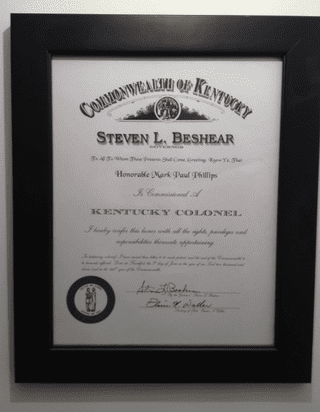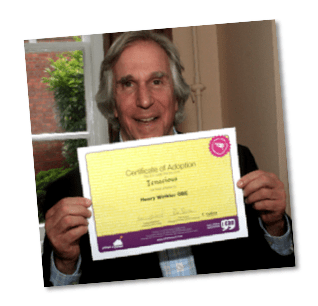Value Vs cost
 I'm rather proud to say that I'm a Colonel.
I'm rather proud to say that I'm a Colonel.
Not just any Colonel. I am a Kentucky Colonel.
For people who don't live in Kentucky, let me explain in a little more detail.
"A commission for a Kentucky Colonel is given by the Governor and Secretary of State for Kentucky to individuals in recognition of noteworthy accomplishments and outstanding service to a community, state or the nation."
It's a pretty illustrious group. My fellow Colonels include Muhammad Ali, Elvis Presley, Bill Clinton, Winston Churchill and, of course, Colonel Sanders.
Like any title, it doesn't offer many direct benefits but it does link me up with the Honorable Order of Kentucky Colonels which raises millions of dollars for charity.
As a member, I'm encouraged to do my fair share of giving. If I'm particularly generous, I receive a Medal of Distinction which I imagine is great for easing the conversation around to my title at social events. And I hope I'd get a suitable nod of respect if I ever bumped into another Colonel whilst wearing it (which isn't that likely on the streets of Hoxton, but you never know).
But what does my bragging have to do with fundraising?
Well, though it costs Kentucky very little to make me a Colonel, I am now directly connected to the state and am seriously thinking of supporting Kentucky based charities – something that has never been on my radar before.
After all, now I'm a Colonel, I want to be a good one!
The great thing about this approach to recruiting supporters is that it isn't restricted to American states. Any charity can copy this route to building connection. All they need to do is identify something that donors value but costs nothing.
A great example of this has been developed by I CAN. I CAN is a small UK charity that helps children who struggle with their communication skills. It could, like thousands of other organisations, have asked people to simply donate to fund their work. But they were a little more innovative than that.
 They set up a adoptaword.com and offered people the chance to adopt their favourite word for £15.
They set up a adoptaword.com and offered people the chance to adopt their favourite word for £15.
I CAN doesn't own the English language. But nor does anyone else. I CAN simply packaged the concept of word adoption and offered it online. Anyone can now adopt their favourite word for themselves or give it as a gift and it will be delivered to the lucky recipient on an 'official' certificate.
And with careful follow up, I CAN are converting a significant number of word adopters to long-term supporters.
UNICEF took a slightly different, but equally innovative approach and linked up with paint manufacturer, Dulux, to offer people the chance to own (and name) their favourite colour for just £1 on ownacolour.com. In response, over 100,000 people have taken the chance to buy one of the 16.7 million colours on offer.
Scope are giving people the chance to take a (virtual) seat in the House of Lords as part of a campaign to ensure legal aid remains available to welfare benefits claimants.
And let's not forget that even the more traditional approach of offering naming rights can get a new boost of life when presented online. The PDSA, for example, have focused on the more affluent donor, offering supporters the chance to name a room. A major operating theatre can be named after Auntie Jean for the bargain price of just £275,000.
Even with these ideas taken into account, it seems to me that free stuff that no one really owns is an untapped resource. So what can you offer donors that will cost you nothing?
A quick brain storm could pay a massive dividend.
Tags In
The Essentials

Crack the Code to Regular Giving: Insights, Strategies, and a Special Giveaway!

‘Tis Halloween. Keep to the light and beware the Four Fundraisers of the Apocalypse!

Why do people give? The Donor Participation Project with Louis Diez.

A guide to fundraising on the back of a postcard

What does the latest research tell us about the state of fundraising?





